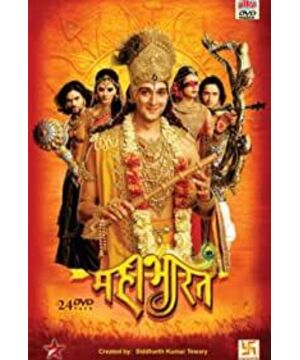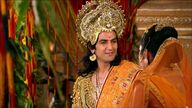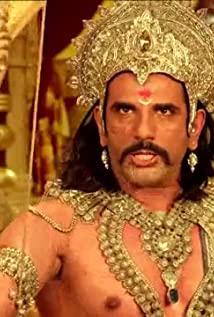The story told by the Mahabharata, aside from the deep meaning it is about to describe, regarding the definition and transformation of the Dharma, I think its storytelling is sublimated because of the tragic color in the play. Tragedy is even more thought-provoking.
The Tragedy of Bhishma: Vows and Dhamma
The tragedy of the eldest uncle began with an oath, and his life was finally an oath. For the uncle, the real tragedy of life is that the Dharma he believes in and protects is not the real Dharma. He didn't realize it until the battle of Julu and Xiao Sunhua taught him a lesson. Thinking back, the uncle's name is Heaven Oath, so his life is also inseparable from the oath. He thought that what he thought was the Dharma, so he insisted on abiding by his oath, even if the oath was unjust, he had to endure the pain and persevere. This is understandable, people are responsible for their own words and deeds, but to make oaths to achieve some unjust goals, and ultimately hurt other poor people who have no sin because they must not violate the fear of being punished by God, that is also a kind of injustice. The eldest uncle helped Zhou to abuse, and indirectly hurt many people, including Anba and the black princess (all of them were women?), it is only natural for him to die at the hands of women.
The Tragedy of Karna: The Caste System
Karna's tragedy started relatively early. Gonti had two sins in her life. Although she was essentially a good person, she had no intention of hurting Karna and abandoned it, but Karna was born with armor. Certainly not an ordinary person. Karna's tragedy reflects the problem of caste discrimination in India. He was born extraordinary but grew up in a family of a coachman by fate. During the contest to welcome the relatives, the five Pandu sons and the black princess had both humiliated Karna because of the caste issue, but they were unexpectedly unrestricted by their inherent thinking and supported Karna. From the perspective of the play alone, such a plot setting is conducive to the development of the plot, but it is not very logical. The five Pandu sons and the black princess have always been the embodiment of "goodness", and they have no reason to do such humiliating things. Karna's sadness is that during the war, he knew his own background, but found that he had gone farther and farther from his brother and went against it. This is also a great harm to the five sons.
Amba's Tragedy: Love Can't
Anba is an important figure that echoes from end to end. The core of her tragedy is that love is not enough, and love generates hate. The eldest uncle is a typical flirtation and not marrying, and he ruined Anba's life. It is the best ending for the uncle's life to end in the hands of Anba, who was reborn from ashes. She was reborn as a curly hair, and because women couldn't go to war, she had to become a man. Her road to revenge is very difficult, and she may not be happy if she gets what she wants. Maybe it's just that the author needs to have a reasonable reason to kill the undead uncle. Hey. Poor Amba.
The Tragedy of the Black Princess: The Power of Women
Think about it, what did the black princess do wrong? She didn't seem to have done anything wrong except for her rude words to Karna at first. And the hurt kept on her. Gonti's inadvertent mistakes, the stubbornness of the battle, the inaction of the uncle... Fortunately, there is finally the protection of the little sunflower. That scene in Endless Sari is really sad and poignant, sad. However, the black princess seems to be the protagonist, but she does not seem to play a role in promoting the plot. Most of the time she is passive. Seemingly tenacious but not doing much. She is not weak, but she is not strong enough either. In the play, she has a friend like Little Sunflower, which is her great advantage. Her five husbands were also apparently immature. Perhaps because she is the incarnation of the auspicious goddess, all she wants to show is this indomitable spirit of tenacity.
The Tragedy of Gandhari: Self and Introspection
Gandhari's biggest problem is that she is too egoistic. She blindly chose to experience the darkness of her life with her husband, thinking that she can get her husband's love by empathizing with her, but she never thought about whether the other party really needs you to do this. Her tragedy is self-initiated, and the final outcome is not tragic, at least she and her husband are still alive and dying. But her children have caused too many disasters due to her neglect of discipline or wrong education methods, and they all died in the war. And although she is alone, her fate is not enough to deprive her of her life, perhaps a reward or a punishment.
View more about Mahabharat reviews











